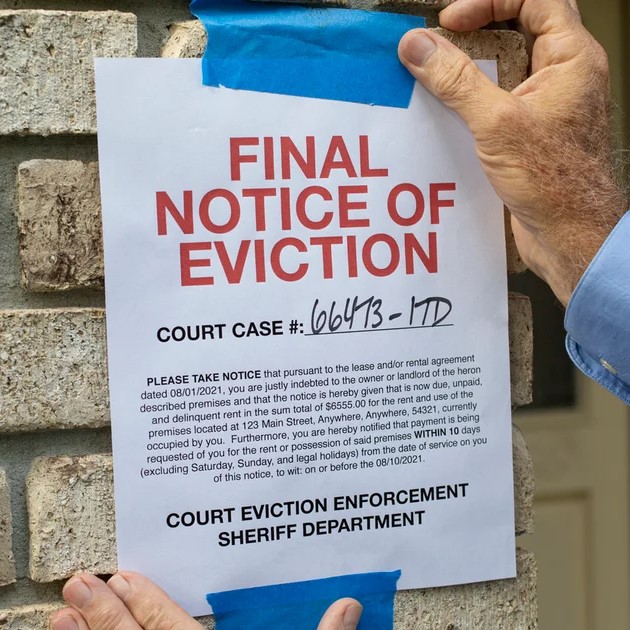The eviction process is an unfortunate but sometimes necessary step in property management. Understanding the legal requirements and procedures is crucial for property managers to protect their investment and maintain smooth operations. This article will outline the general steps involved in the eviction process, while emphasizing the importance of following local laws and regulations.

Understanding Eviction Laws
Eviction laws vary significantly by jurisdiction, so it’s essential to familiarize yourself with the specific regulations in your area. Consult with legal counsel to ensure compliance with all applicable laws.
Common Grounds for Eviction
While specific grounds may vary, common reasons for eviction often include:
- Non-payment of rent
- Lease violations (e.g., pets, illegal activities, property damage)
- Disturbance of other tenants
The Eviction Process
The eviction process typically involves the following steps:
- Notice to Vacate: This is the first formal step, informing the tenant of the reason for eviction and the date by which they must vacate the property. The specific requirements for this notice, including the number of days required, will depend on local laws.
- Legal Proceedings: If the tenant fails to comply with the notice to vacate, the landlord may initiate legal proceedings. This usually involves filing a complaint with the local court.
- Eviction Hearing: A court hearing will be scheduled to determine the validity of the eviction. The tenant may have the opportunity to present their case.
- Eviction Order: If the court rules in favor of the landlord, an eviction order will be issued.
- Eviction: Law enforcement officers will typically be involved in physically removing the tenant from the property.
Important Considerations
- Documentation: Maintain thorough documentation of all interactions with the tenant, including rent payments, lease violations, and attempts to resolve issues.
- Communication: While maintaining professionalism, clear and consistent communication with the tenant is essential throughout the process.
- Timely Action: Promptly addressing lease violations and non-payment can help prevent the need for eviction.
- Legal Counsel: Consulting with an attorney can provide valuable guidance and protection throughout the eviction process.
Preventing Evictions
While evictions are sometimes unavoidable, proactive measures can help reduce the likelihood of this occurring:
- Thorough Tenant Screening: Conduct comprehensive background checks to minimize the risk of problem tenants.
- Clear Lease Agreements: Ensure the lease agreement outlines the tenant’s responsibilities and consequences for violations.
- Regular Property Inspections: Conduct routine inspections to identify and address potential issues before they escalate.
- Effective Communication: Maintain open communication with tenants to address concerns and prevent misunderstandings.
It’s important to note that the eviction process can be complex and time-consuming. Seeking professional guidance from a property management company or legal counsel can help streamline the process and protect your investment.
Disclaimer: This article is intended to provide general information and should not be considered legal advice. It is essential to consult with an attorney for guidance on specific eviction matters in your jurisdiction.



